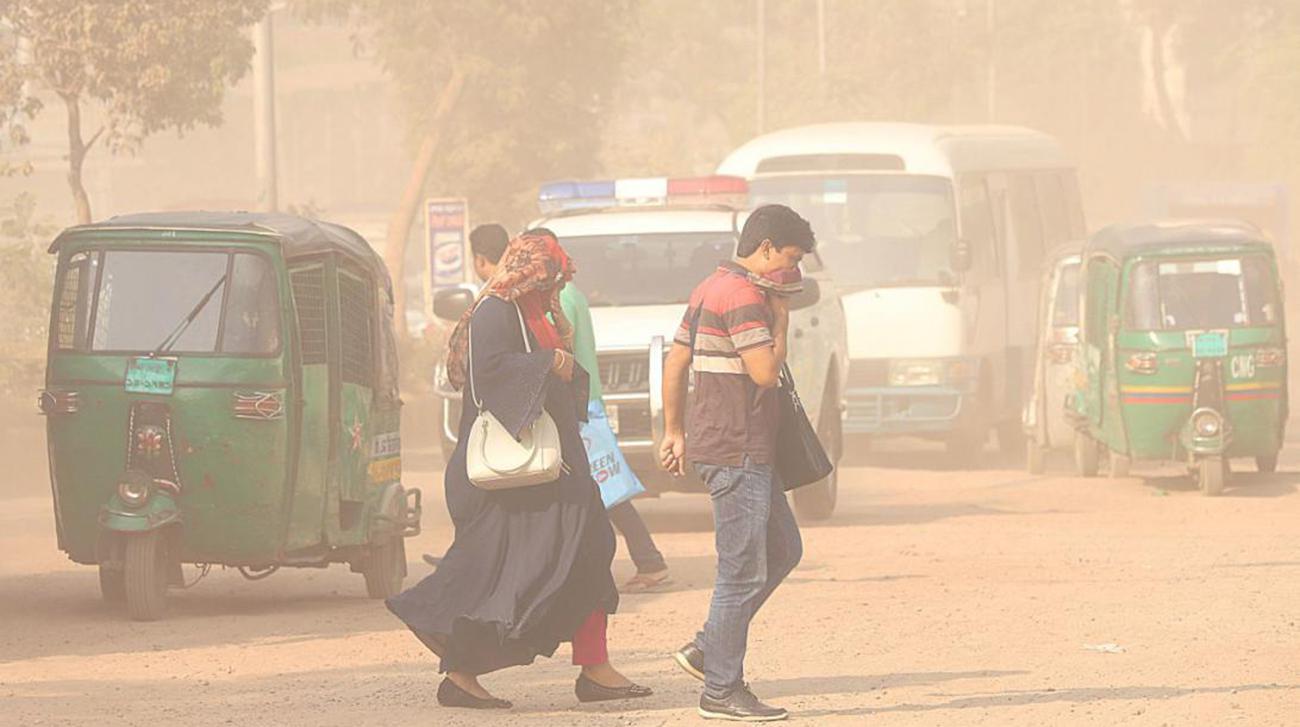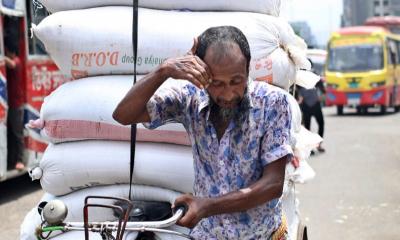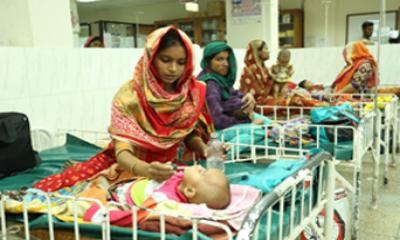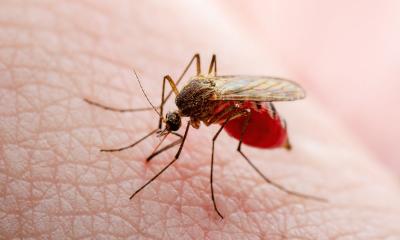- Waste burns over 100 places in Dhaka
- Asthma, pneumonia, bronchitis, miscarriages, and cancer occurs
- Life duration of capital’s dweller decreases to 8 years
- Men’s sperm production decreasing, women's ovaries too
Global development, continuous industrialization and rapid population growth are increasing environmental pollution. Climate change, depletion of the ozone layer, changes in ecosystems, loss of biodiversity, pollution caused by the depletion of natural resources and extreme heat are increasing the risk of serious diseases in humans. The number of patients like asthma, pneumonia due to air pollution is constantly increasing. Apart from that, air pollution is a major obstacle in the development of the nervous system of the child, headaches and dizziness, miscarriages, birth defects.
The number of people suffering from bacterial infections including bronchitis, lung inflammation, and pneumonia is also increasing. In addition, cardiovascular health problems, cancer and premature death have increased. At the beginning of the summer season, hospital beds, floors and balconies have to be given to patients.
Environmental pollution is caused by hazardous and toxic chemicals. Such pollution is mostly caused by industrial activities, agricultural chemicals and inadequate waste disposal. Chemicals responsible for pollution are petroleum hydrocarbons, solvents, pesticides, lead, mercury and other heavy metals. These chemicals can have negative effects on human health. In this case, the risk of many other serious diseases starting from headache, eye irritation and skin rash may increase. High levels of lead in soil can hinder brain development in children. Exposure to mercury, on the other hand, can increase the risk of organ damage, even kidney and liver damage.
Water pollution is mainly caused by chemicals. Waste materials from various industries are released into water. It increases the risk of serious diseases like hepatitis, encephalitis, gastroenteritis, diarrhea, and vomiting, abdominal pain. This water pollution can even cause reproductive problems and neurological disorders.
A mother named Shayla Tabassum came to Shyamoli Bangladesh Children's Hospital and Institute (Dhaka Children's Hospital) with her child named Reba Tahiya (10) from Capital’s Banasree last Sunday. Her husband is a Lawyer by profession. She is a housewife. She said, since yesterday (Sunday) night, Reba is suffering from severe breathing problem. Even after nebulizing, the shortness of breath did not decrease. So she came to the hospital with the child. Reba has already contracted pneumonia twice. Doctors blamed air pollution for this, she said. She said that, they have come to the capital with small children. Sometimes the daughter is sick and sometimes the 4-year-old son Alif and Reba are both getting sick. They decided to leave the capital several times and go back to the village. But she could not go for her husband's job and being forced to stay in the city. She regretted that the capital is no longer livable. But in order to earn a living, you have to know these things. Diseases are also increasing. Everyone is in potential danger, may be already into it.
Dr. Be-Nazir Ahmed, the former director of the disease control branch of the Department of Health, said "We are lagging behind in all indicators of livable cities." Sustainable development cannot be sustained if prevention is not possible. Killing of trees, increase in fuel oil use, unfit cars and black smoke, littering everywhere. Brick kilns around Dhaka, filling of reservoirs, canals - these must be stopped now. Due to the lack of attention in these sectors, air quality pollution is at the top. The nation is full of air pollution sick people.
Addressing the people, he said, if everything depends on the government or the state, Dhaka will not become a livable city. We have to take responsibility ourselves. Sufficient trees should be planted in the empty space of the neighborhood. Throwing garbage everywhere should be stopped. One should also take care about the fumes of private vehicles.
According to experts, air pollution also increases the risk of several diseases in the environment. As a result, the average life expectancy of people in the country is decreasing. According to a report of the World Bank, poor women and children are suffering greatly due to pollution as they mostly live in polluted areas. As a result, children's intellectual development and neurological damage can occur greatly. Apart from this, air pollution is one of the causes of physical damage to pregnant women. Studies have shown that living in polluted areas can greatly increase the risk of miscarriage and stillbirth among pregnant women.
According to research by the Energy Policy Institute of the University of Chicago, the average life expectancy of Bangladeshis has decreased by seven years due to air pollution. And the average life expectancy of the residents of the capital is decreasing to eight years. According to the World Health Organization, 4.2 million people die prematurely every year due to air pollution worldwide. Most of the non-communicable diseases that kill people worldwide are caused by air pollution. US research institute Lawrence Berkeley National Laboratory said that exposure to polluted air containing chemical mixtures can cause eye, nose or throat infection or damage. At the same time, various lung complications, such as bronchitis or pneumonia, headache, asthma and various allergic problems can also occur.
Air pollution also harms reproductive health, according to a survey by the private Stamford University's Center for Atmospheric Pollution Studies (CAPS). According to experts, air pollution disrupts sperm production in men. Even sperm quality is decreasing. On the other hand, women's ovaries have decreased unimaginably. And the eggs that are there are also getting destroyed. Air pollution is also responsible for cancer and heart disease. Long-term exposure to air pollution or working in such an environment can cause lung cancer and heart disease. It can even cause long-term problems with the brain, liver or kidneys.
CAPS Professor Kamruzzaman said that one-third of the 1.6 million vehicles in Dhaka, i.e. more than five million vehicles, are responsible for pollution. Pollution is increasing as dilapidated vehicles are allowed to run. The government also knows how much pollution is coming from which source. Pollution is not being eliminated due to failure to implement sustainable management and methods to control pollution at source. Waste is burned in at least 100 places in Dhaka, including Matuail, Aminbazar garbage dump. Brick kilns are all around beside capital Dhaka. Trees have disappeared rapidly from the city. Rivers, canals and reservoirs are filled with waste and plastics. Due to these reasons the air quality of the country is very low. On the other hand, heatwave has been added. Effective measures should be taken to deal with these. Otherwise there will be more adverse effects on public health.
ZH






